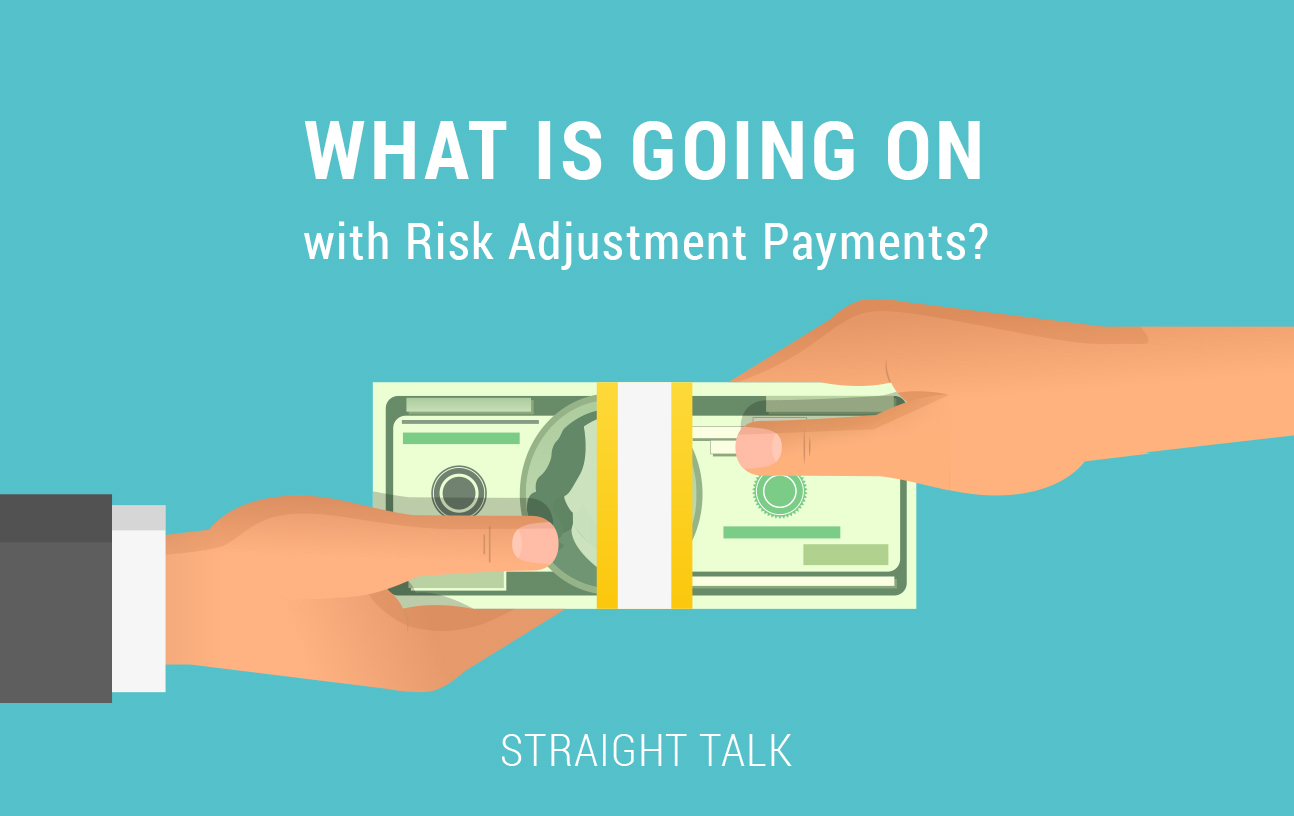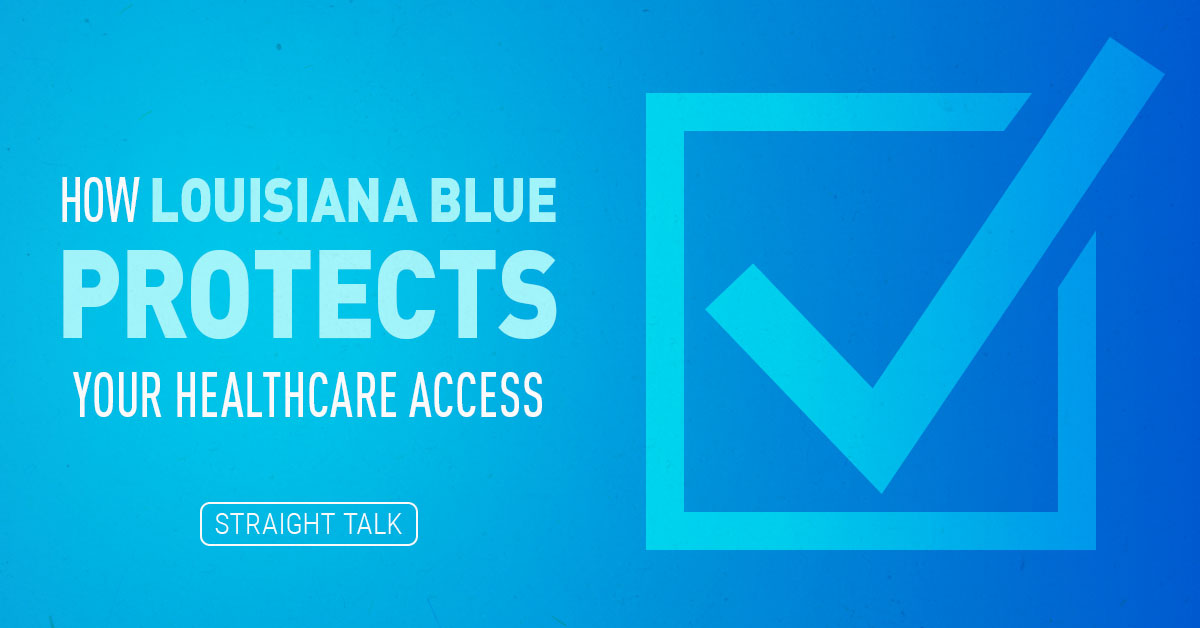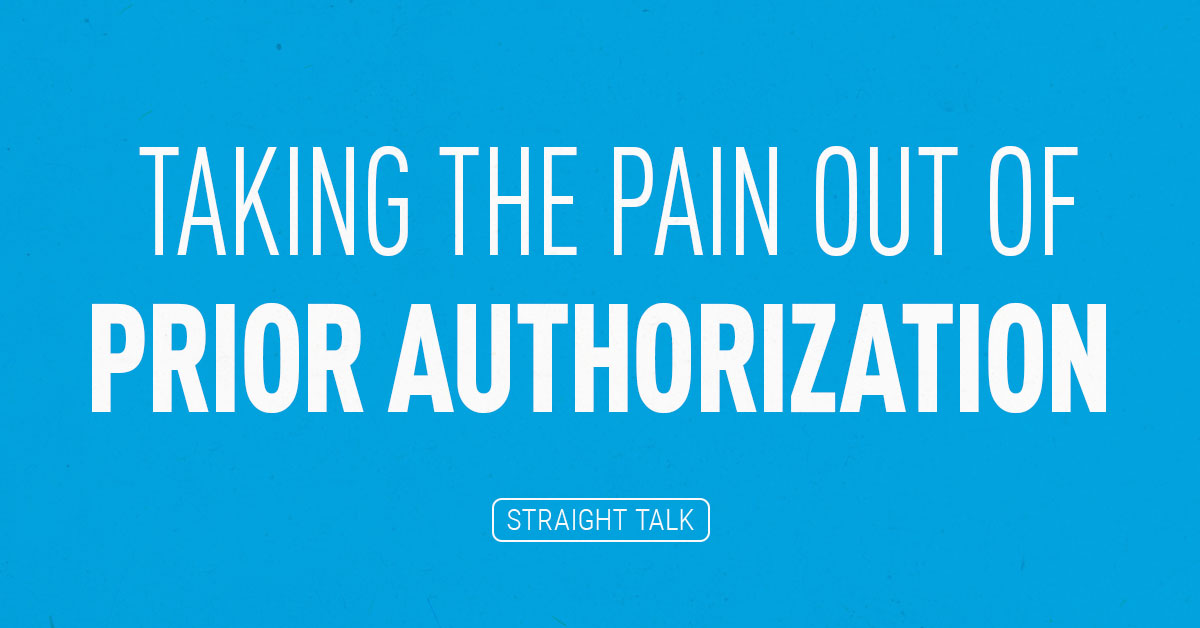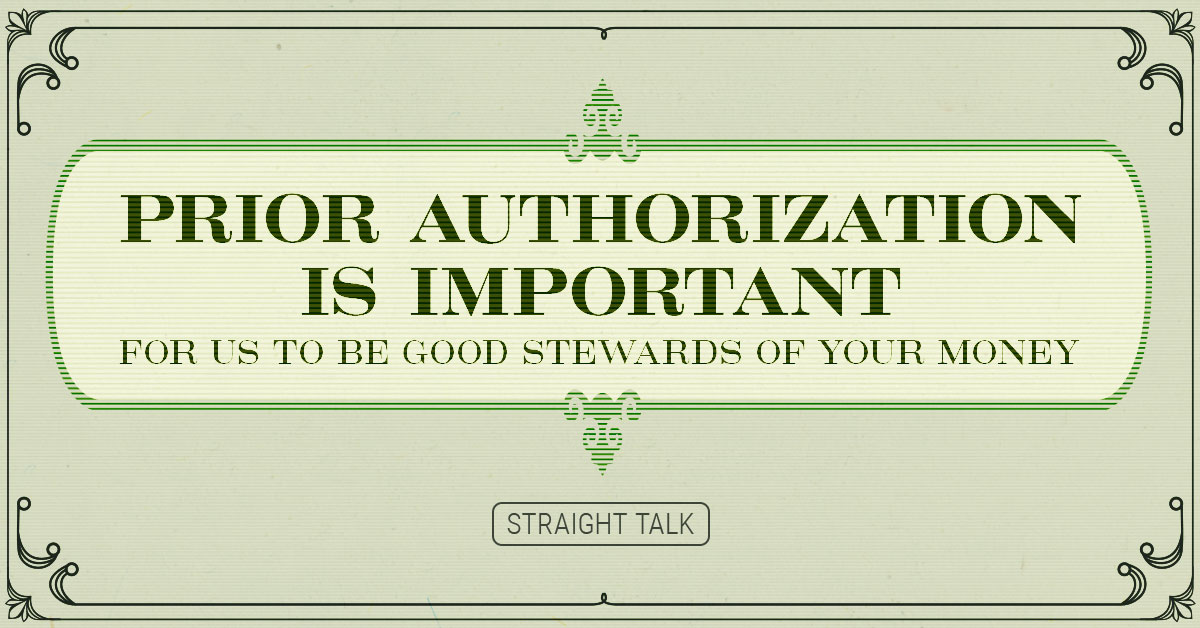You may have seen news coverage recently about changes to something called the “risk adjustment program.” In this blog, I’ll explain what that means and whether or not it will affect you.
Background
Earlier this month, the Centers for Medicare & Medicaid Services (CMS) announced that it was suspending the risk adjustment program, after a ruling by a judge in the U.S. District Court for the District of New Mexico. A small co-op in New Mexico sued, saying the program hurt smaller insurers. The court’s ruling is not yet final, but the judge says it will be by the end of the summer.
What Is the Risk Adjustment Program?
Risk adjustment is a reimbursement program created as part of the Affordable Care Act (ACA). It helps health insurers provide coverage for individual and small group members with high medical needs by sharing the cost of covering them with health insurers who cover healthier people.
In Louisiana, Blue Cross takes all comers in the individual market, which means we cover both healthy members and those with greater medical needs. The risk adjustment program has been there to help us provide valuable protection for all members, regardless of their health status.
We were among the first insurance companies to join the exchange, and today we are one of only two insurers in Louisiana that still participates. Although we lost money during the first three years we were on the exchange, we kept our commitment to Louisiana and stayed the course. We’re committed to staying in the exchange in 2019.
You might have a few questions about risk sharing and what it could mean to your insurance premiums. I’ve tried to answer them.
How Does Risk Adjustment Work?
Risk adjustment creates a “level playing field” for health insurance companies that participate on healthcare.gov (also called the exchange). Risk adjustment is there to help health insurers share the costs of covering customers with higher healthcare expenses.
Each year, insurers report claims, premiums and risk scores to CMS, which takes that information and calculates an average profitability for each insurance company. Companies with earnings above the average have to pay CMS, and CMS uses that money to reimburse insurance companies with earnings below the average. Sometimes the earnings are a negative number (like in 2015-2016 here at BCBSLA).
It’s important to note that the risk adjustment program does not involve government or taxpayer money. It is simply a transfer of funds from insurers covering healthier members to insurers covering members with more health needs. The program is considered “budget neutral.” CMS just administers it.
What Does the End of the Risk Adjustment Program Mean To Me?
The risk adjustment program is based on the previous year’s revenue. In this case, it’s 2017 revenue. CMS reported that Blue Cross is owed more than $41 million from our 2017 revenues. It is a lot of money, but your coverage and your rates will not change for the remainder of this year. We don’t know yet how the suspension will affect rates for 2019. Fortunately, Blue Cross has a reserve fund to cover these types of losses, so there’s typically no disruption to our customers. But if risk adjustment payments are not reinstated, it could affect rates in the future.
Does This Mean Blue Cross Will No Longer Participate On healthcare.gov?
Blue Cross and Blue Shield of Louisiana is committed to participating in the individual market in 2019. We will offer plans statewide and give all of our customers the quality coverage they deserve.
Blue Cross is a nonprofit company, owned by our members. That means we can make decisions truly based on what’s best for our customers—not shareholders demanding dividends. That’s also one reason we work so hard to keep costs down and keep our plans affordable. It’s why we are here, after all! Our friends and families are Blue Cross members, too! The risk adjustment program has helped us keep individual plans affordable and keep our commitment to Louisiana.
Does Blue Cross Agree with the Court’s Decision?
We are disappointed in this decision and urge CMS to do everything they can to restore the payments and make them on schedule. Re-starting the risk adjustment program will help stabilize the individual market and help make coverage more affordable.
And that’s the Straight Talk on risk adjustment.





Hi Michael,
With the issues around Risk Adjustment payments by the Federal government, along with other factors which make the ACA market higher risk and less desirable for Payers, it’s not surprising to hear about Payers exiting that market. But, I was shocked recently to read that Anthem’s profits increased significantly due to their increases in Medicare Advantage members, while decreasing their ACA membership. I couldn’t believe that the terms profitable and Medicare were used in the same sentence. How could this be so?
“Profits” in this case is a relative term. Remember anyone that sells MA coverage is getting fixed payments from CMS to manage the total healthcare of everyone they enroll. They have to cover the healthcare costs out of that “fixed” payment, AND demonstrate to CMS that at least 85% of that payment was spent on nothing but healthcare. That means they have to pay all the taxes, fees, network fees, operational expenses, payroll, regulatory costs, etc out of the 15% and IF they are going to turn a profit, it too will have to emerge from that 15%. So in MA, a 1 or 2% profit is very noticeable.
So with this new program, is there a certain percentage of the medical costs that it will reimburse or will it do all? Now I am pretty healthy so I may not need it but you never know what could happen. Perhaps I could at one point in time in the future so it would be a good idea to learn a little bit about it.
Caden! Thanks for reaching out to us.
In general, risk adjustment payments are made at the company health plan, or insurance company carrier level, so individuals do not typically receive any direct compensation for risk adjustment. They are, however, CRITICAL payments that help to keep health insurance premiums from going up as fast as the health of the population might indicate. Very important, but not a direct payment to individuals.